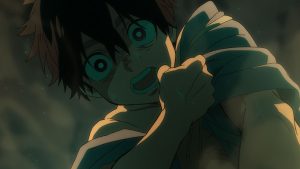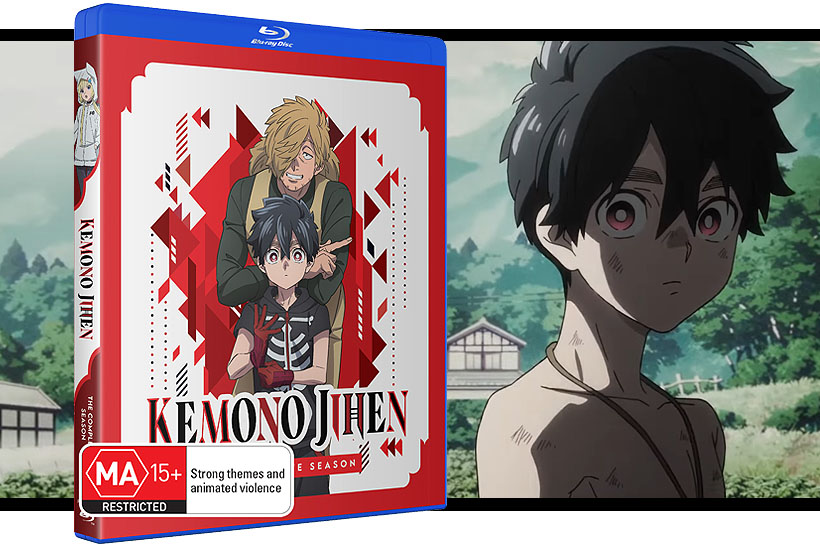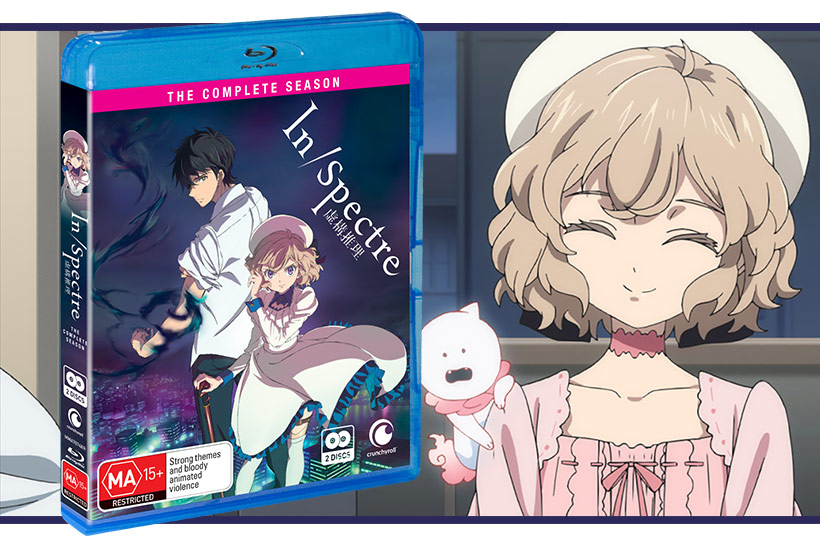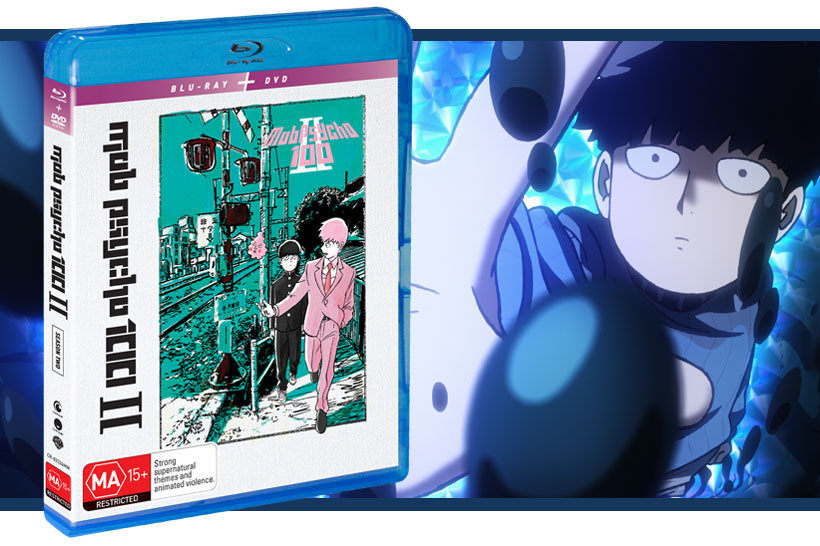Specialising in the supernatural, detective Kohachi Inugami travels from Tokyo to a small town to investigate what is causing the gruesome deaths of the local livestock. While investigating, he meets a young boy named Kabane Kusaka working at a local inn and recruits him as a guide to help uncover the truth behind the killings. However, unravelling this mystery reveals further truths, and Kabane is revealed to be a hanyo – the offspring of a human and a ‘kemono’, or demon. Specifically a ghoul-human hybrid, Kabane’s presence in the small town has drawn the ire of its inhabitants who may wish him harm. Luckily for Kabane, Inugami takes him under his wing, recruiting the hanyo to work at the Inugami Strangeness Counselling Office in Tokyo. Alongside fellow supernatural teenagers spider hanyo Shiki and snow boy Akira, Kabane works with Inugami to keep the peace between humans and kemono, all while seeking to learn more about his parents who left him behind in that small town many years ago.

Kemono Jihen is an anime adaptation of the manga by the same know from Ajia-do Animation Works, the studio behind Kakushigoto and Ascendance of a Bookworm. The series offers an interesting peek into a world populated by creatures from Japanese folklore such as tanuki, kitsune, and nekomata, and follows the crew of the Inugami Strangeness Counselling Office as they go out on jobs that support the coexistence of humans and kemono.
The world of Kemono Jihen is intriguing in its sense of complexity. The factions of kemono and their different societies, kemono alliances, how kemono take advantage of humans and how humans take advantage of kemono, are all topics explored within Kemono Jihen and make the series and its concept feel well-realised. The darkness intertwined in Kemono Jihen’s supernatural elements also has an interesting intensity and grimness – kemono hungry for blood make their homes in the forests and cities looking for their next meal, humans exploit kemono in inhumane ways, and some kemono perpetuate their societies through unspeakable cruelty to children.
This grimness extends to the main trio of the series, Kabane, Shiki and Akira who, for lack of a better term, have just really gone through it. Kabane’s childhood trauma of being a target of his hometown’s ire results in him feeling detached physically and emotionally from himself. This constantly leads to situations where Kabane does not prioritise his physical safety due to his abilities as a regenerating ghoul, and he often speaks dispassionately about himself or others committing acts of violence (sidenote, his English voice actor Madeleine Morris does a really good job at balancing both the humorous and uncomfortable elements of this dialogue). The childhood trauma is shared equally among the main cast of Kemono Jihen, with Shiki and Akira each having their own complex and quite uncomfortable pasts with their families and communities, which the series takes time to trawl through in a way that doesn’t shy away from its darker elements, while still approaching these elements maturely and with compassion. This darkness reflects the complexity of the world of Kemono Jihen and makes for some compelling viewing.

Childhood trauma and dark supernatural vibes aside, there are less intense things to enjoy from Kemono Jihen. Watching Kabane, Shiki and Akira develop their friendship while under the care and tutelage of Inugami is really endearing, especially with the added layer of Kabane learning how to live a life surrounded by people who genuinely care about him. Kabane’s growing relationship with a kitsune named Kon is also fun, as she is in a similar predicament to Kabane where she hasn’t necessarily been exposed to the way the world works and has a lot of things to learn. Their shared experience of regularly misunderstanding the situations taking place around them is genuinely sweet as they form a bond and work together to define these experiences – what it means to be useful, strong, to care about each other – within their own understandings.
These relationships between the characters grow and change throughout the series, lending more weight to the series’ aforementioned darker moments as the cast are put in difficult situations where they have to rely on each other and their bonds to pull through. As a result, Kemono Jihen slots nicely into the found family niche and its emphasis on developing relationships strikes a good balance with its darker moments, making both elements stronger and more enjoyable throughout the series.

Kemono Jihen offers and intriguing look into a world populated by creatures from Japanese folklore that doesn’t shy away from exploring its darker supernatural concepts through a compelling and empathetic lens. It is a solid series that I enjoyed a lot, and stands out even amidst the abundance of high-quality supernatural demon anime that has been released over the past several years (Dororo, Jujutsu Kaisen, Chainsaw Man, to name a few). It is definitely worth a watch.
A review copy was provided by Madman Entertainment to the author for the purpose of this review.
©Sho Aimoto / SHUEISHA, Kemono Jihen Committee





